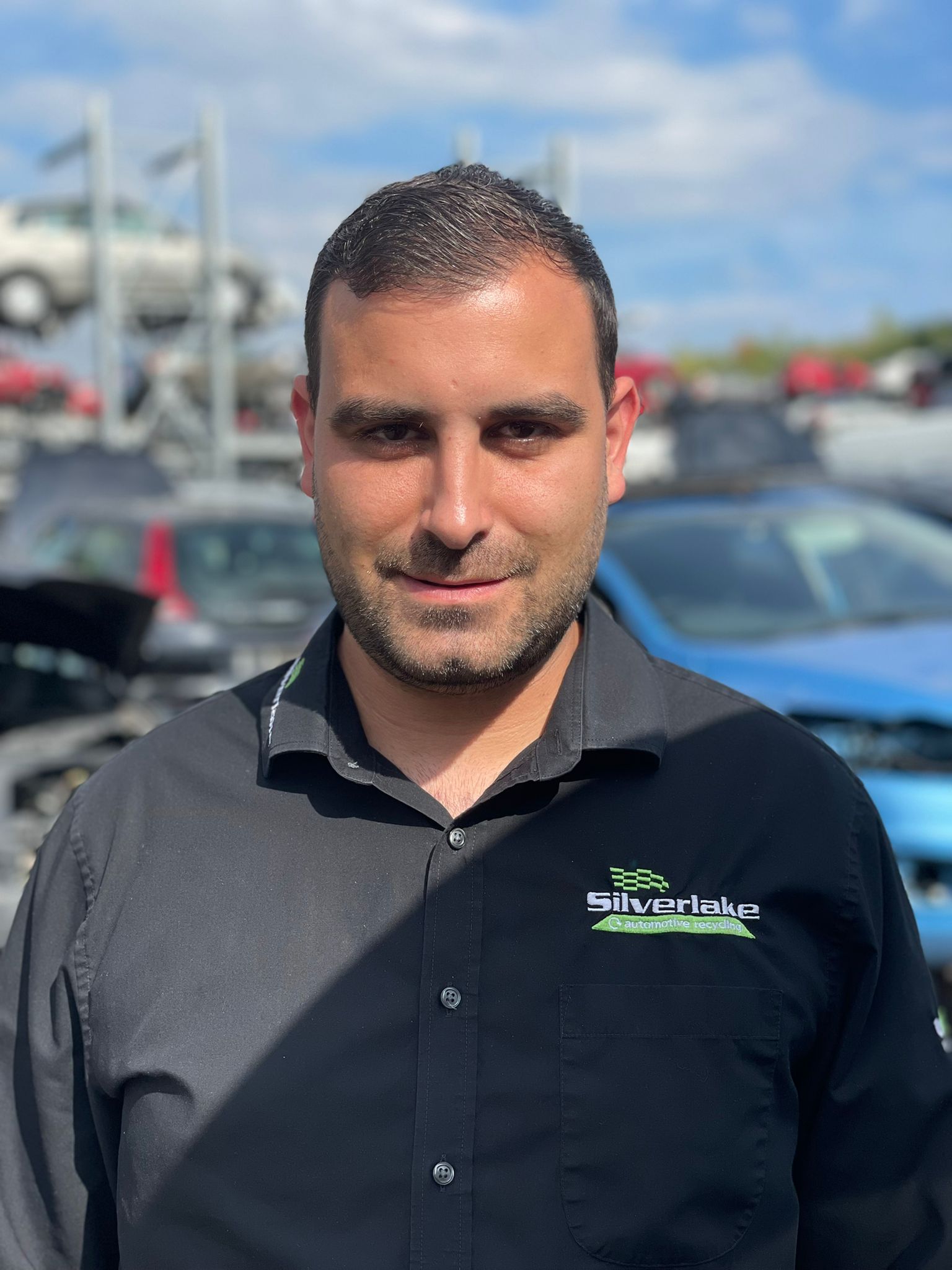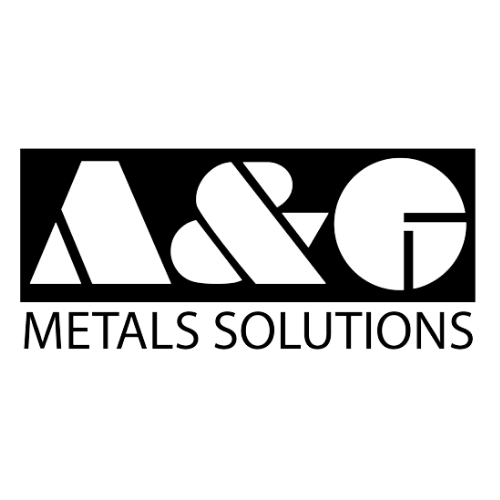Copart welcomes the rise of Green Parts highlighted by the ABP State of the Industry Report 2022
Global leader in online vehicle remarketing and recycling, Copart UK, has welcomed the recent findings of the 12th annual ABP State of the Industry Report, which reflects the ongoing increase in demand for Green Parts.
Copart plays a prominent role in promoting the economic and environmental benefits of vehicle recycling and parts dismantling through its vehicle remarketing and recycling services.
Copart positively recognises the fact that the ABP’s Industry report clearly illustrates the continued year on year growth in, and demand for, Green Parts.
With 79% of respondents stating that they have fitted Green Parts, Copart welcomes the fact that Green Parts have moved into the mainstream as a viable solution for the sector.
Given the rise in usage, Copart also believes that the report clearly demonstrates how seriously organisations in this sector are taking the climate crisis and committing to reduce, reuse, and recycle by adopting and supporting the growth of Green Parts as part of their wider ESG strategies.
Collectively, as an industry, the day one issues are being solved at pace, with provenance, quality, and supply now less problematic. As the report suggests, this progress has now moved Green Parts from the side lines to front and centre.
Copart considers viable and scalable Green Parts vital for the repair industry, offering a pragmatic and environmental solution given the ongoing supply chain issues and parts demand.
The report also re-enforces the reality of ongoing supply chain issues as it demonstrates a significant year on year rise, in percentage terms, that the key drivers when deciding to use Green Parts are parts availability and timescales.
Clearly these issues impact both the Policy Holder and the Insurer in terms of time and money associated with a repair but are solved through the availability of robust green parts services in the market.
The other key fact highlighted in the report is that although Green Parts are suitable for many repairs, Green Parts are not suitable for all.
When it comes to safety, there is no compromise, and the report does illustrate that in some cases Green Parts are not the answer. As a key supplier in this sector, Copart believes that increasing the availability of viable, quality assured Green Parts across the industry has huge benefits in the short, medium, and long term.
Copart is at the forefront of upcycling and recycling vehicles, and, with extensive reach through its worldwide auction platform, supports the continued growth in the global circular economy by offering widespread access to Green Parts.
Jane Pocock, CEO of Copart UK & Ireland, said:
“The ABP State of the Industry Report clearly reflects an ongoing demand for green parts where provenance and quality are paramount. As a key supplier we recognise the need to help all our customer groups access Green Parts and we are proud to be an enabler of the Green Parts revolution!”
e2e Total Loss Vehicle Management responds to the 2022 ABP Report on the State of the UK Body Repair Industry
As the UK’s only network of nationwide vehicle recyclers e2e is in a unique position to reflect on the findings of the 2022 ABP Report on the State of the UK Body Repair Industry in relation to reclaimed parts. Our members collectively hold the largest inventory of quality graded, warranty assured, original reclaimed parts stocks in the UK, standing at over 5million, and all members are accredited to the VRA UK Standard for Reclaimed Parts.
It is encouraging to see that the report states that a record 79% of bodyshops that responded are now using reclaimed parts and that 74% had increased their usage in 2022. Interestingly, the ratio of reclaimed parts as a percentage of overall parts volumes has decreased slightly with 15% reporting 10% or more in 2022 compared to 17% in 2021. This is surprising when parts shortages are affecting such a high proportion of bodyshop jobs, but perhaps less so when you see that 60% of respondents are using more non-OE parts than in 2021 as a result of parts availability issues.
It would be interesting to scrutinize the drivers and perceived advantages of using non-OE parts compared to original reclaimed parts. Is it because bodyshops are struggling to identify and source original reclaimed parts? Currently, unquestionably, the supply chain is fractured and there is no centralised view of reclaimed parts availability. Bodyshops typically have to visit multiple providers to fulfil their bill of materials, which is time consuming and resource hungry. The opportunity to better service and join up the supply chain is an ongoing discussion which will be taken forward at the next meeting of the Reclaimed Parts Cross Industry Working Group. This group was founded by e2e in 2022 and its second meeting will take place in the new year, facilitated by e2e and including representatives from ABP, ILC, NBRA, and VRA.
In parallel, 60% of respondents equally reported using more reclaimed parts than last year, as a result of parts availability issues. There are those that may say the boom in demand for reclaimed parts will be short-lived and once new parts become readily available, demand for reclaimed parts will fall away. Our network members take the opposite view. Their confidence in the future of the market can be measured in the investment taking place within their businesses, to include facilities, logistics, technology and people. They firmly believe that the parts availability issues threatening the motor repair supply chain represent opportunity to either introduce or further reinforce reclaimed parts as an ongoing, credible part of the solution for bodyshops. Furthermore, the average age of vehicles on the roads continues to increase, as evidenced by the fact that 74% of bodyshops use reclaimed parts when the new part is no longer available. With manufacturers ceasing to make combustion engines in 2030 and the cost-of-living crisis resulting in more people holding on to their cars for longer; this looks set to be a growing trend. Add to this increased scrutiny on ESG compliance across the motor supply chain and the carbon reduction benefits of reclaimed parts will add to the attraction of the proposition as a sustainable solution.
It is curious to see 44% of bodyshops citing policy holder resistance as a reason for not using or not increasing their use of reclaimed parts. This contradicts the insights gained at a recent webinar hosted by e2e which featured bodyshop and insurer representation. Insurers were clear that in the main, policyholders were open to the use of reclaimed parts, particularly if it expedited the repair process. At the time, there were discussions as to where the responsibility lay to educate the consumer on the practical and environmental benefits of reclaimed parts and suggestions that including reference to their use in policy cover documents was advisable.
Of more concern is the 61% of respondents who reported that inconsistent quality was a cause of them not using or not increasing their use of reclaimed parts. The VRA UK Standard for Reclaimed Parts was introduced to ensure quality consistency. Vehicle recyclers accredited to the UK Standard are audited annually and required to quality grade and warranty assure their reclaimed parts. All e2e members are accredited to the UK Standard and reclaimed parts provided by e2e’s network have an extremely low (<2%) return rate. More needs to be done to understand the quality consistency issues reported and this will also be tabled for the working party meeting in the new year.
Jim Loughran, CEO of e2e Total Loss Vehicle Management comments: “This is a great piece of research by ABP and we thank them for their efforts and for the insight it grants. We mustn’t shy away from addressing the very real challenges that the supply chain and consumer have with regards to the usage of reclaimed parts. At e2e we are already working on solutions that will address many of the issues highlighted in the report. Reclaimed parts have to become a sustainable resource pool for the whole repair sector, it just makes sense! Not just for bodyshops, insurance companies and salvage suppliers, but for the planet as a whole!”

Ecobat partners with CarTakeBack
December 2022
• Leading UK recyclers partner up to serve the EV market
• EV drivers can feel good about resource recovery when scrapping a vehicle
• UK-based solutions for sustainability, circularity and environmental responsibility
This week, CarTakeBack, the largest scrap car recycling network in the UK, and Ecobat Solutions, pioneers in the world of EV battery recycling, announced an official partnership to collaborate in serving the ever-growing need for sustainable recycling of electric vehicles.
Electric vehicles (EVs) have become more and more popular in recent years, with unpredictable fuel prices and changes in work practices hastening the current rate of adoption – with one in five new car registrations now being fully electric, and around half having some form of battery assistance. Consumers, however, remain concerned about the resources and scarce metals required to produce a new battery, and worries about sustainability of this new technology could slow the rate of adoption.
Even though only a small number of hybrid and fully electric vehicles are currently reaching their natural end-of-life, the number of ‘premature’ (usually accident damaged) end of life electric vehicles needing scrapping has been growing in recent years, and CarTakeBack and Ecobat Solutions have been busy helping businesses, vehicle manufacturers and the general public to deal with these successfully for some time now. Whilst generally the issue of recovering and re-using the precious resources used in the manufacture of electric vehicles has not yet been tackled in earnest by the end-of-life industry, based on their extensive experience in already handling these, CarTakeBack and Ecobat Solutions have been planning for the electric future together for years.
Having already successfully collected and handled hundreds of hybrid and fully electric vehicles, and bracing for serious growth in the numbers needing to be scrapped over the next three years and into the future, customers can rest assured that CarTakeBack have become experts in ensuring these vehicles are safely and effectively scrapped, with no more than 5% of the entire vehicle going to landfill. Fully trained and competent dismantlers ensure that the components are removed and given a second life where possible, and the batteries themselves are safely removed and packaged up for their onward journey to Ecobat Solutions.
Ecobat Solutions opened its UK EV Diagnosis and Disassembly Centre in Darlaston, West Midlands, in January 2021. Since then, it has processed over 3000 EV batteries, using manufacturer-standard diagnostic equipment to grade units and either re-engineering or recycling them.
Tom Seward, EU Key Accounts Director at Ecobat Solutions UK, commented, “Ecobat is the world’s biggest recycler of batteries, and the world’s largest producer of lead from the 99% recycling rate of traditional batteries. We aim to bring the same sustainability and circularity to support EV adoption, and offer a full service from collection, through repurposing into final recycling.”
EV owners whose cars have reached the end of the road can simply contact CarTakeBack for an instant valuation either online or by calling their award-winning customer services team, then arrange to drop off their vehicle or have it collected at their convenience. Where the vehicle needs to be scrapped, CarTakeBack will ensure that this happens in line with the End-of-Life Vehicle regulations and it is fully depolluted with 95% of the vehicle by weight reused, recycled or recovered. Where the car is an electric or hybrid vehicle, Ecobat Solutions takes on the battery pack and transports it safely for analysis. If the pack is found to be capable of further operation, it may be re-engineered for use in a second-life application like a home energy storage system, according to the wishes of the original manufacturer. If it is truly at the end of its life, then it can be sent to first-stage recycling, and the precious metals can be supplied back into the supply chain for new battery manufacturing.
Together, both companies are accelerating sustainability in the automotive market, providing a responsible and consumer-friendly solution for end-of-life vehicles – and even more reason for UK drivers to feel good about their shift to EVs, at all stages of the vehicle’s life.
Silverlake Automotive Recycling responds to the 2022 ABP State of the Industry Report
Our experience at Silverlake Automotive Recycling [Silverlake] mirrors the findings of the 2022 ABP State of the Industry Report which reports that a record 79% of bodyshops are using reclaimed parts and 74% said their use of reclaimed parts had increased in the last year.
Silverlake has seen a 49% increase in sales of reclaimed parts to bodyshops and a 29% increase in new bodyshop customers in the last 12 months. We continue to build strong relationships across the bodyshop sector and our nationwide delivery service with our in-house fleet of vans expands our reach and sees us servicing national bodyshop groups including Halo, Apollo and bodyshop parts supplier, JustParts.app.
It is no surprise that 68% of bodyshops fit reclaimed parts when the new part is not available in a reasonable time frame and 74% when the new part is no longer available. The difficulties and delays experienced by bodyshops when trying to source new parts have put immense pressure on the whole industry. Silverlake made a strategic choice to actively take on their bodyshop customers’ parts problems as their own. The parts team developed a ‘managed approach’ system to monitor individual customer back-order lists daily and proactively notify the bodyshop when their required parts were in stock and available for delivery. This added value service removes the need for the bodyshop parts manager to use valuable time checking on back orders and has further built Silverlake’s reputation as the ‘go-to’ point of call when bodyshops need reclaimed parts.
60% of survey respondents cited parts availability issues as the reason for their increased use of reclaimed parts in 2022. This represents opportunity for the vehicle recycling industry to embed reclaimed parts in the repair process by ensuring the delivery of a consistently high-quality, sustainable, reliable service. Silverlake is investing in its facilities, technology and people to reinforce its reclaimed parts proposition for bodyshops. Data analysis is used to predict and inform the business on market requirements so that it buys the vehicles and dismantles the parts that are in high demand. Consequently, fulfilment rates and bodyshop customer satisfaction is high. As well as its own stocks of reclaimed parts, as a member of the e2e Total Loss Vehicle Management network, Silverlake also has access to the network’s inventory of over 5Million reclaimed parts; the largest in the UK.
Carlo Vaccaro, Parts Sales Manager at Silverlake comments: “Confidence in our reclaimed parts quality and service is what will convert new bodyshop customers, who have reverted to reclaimed parts to overcome new parts supply issues, to long-term users of the solution. The carbon reduction benefits of using reclaimed parts will also add to its attraction as ESG compliance becomes essential for businesses operating in the motor industry supply chain in the future. Addressing the 61% of respondents who stated that inconsistent quality was the reason that they didn’t use reclaimed parts or increase their usage of reclaimed parts in 2022; please ensure that you buy your parts from vehicle recyclers who are certified to the VRA UK Standard for Reclaimed Parts, which includes the quality grading of parts and a warranty scheme. Silverlake has just renewed its certification to this standard for the second year running.

e2e reports 25% increase in its subscribed bidder base following the relaunch of its SalvageMarket.co.uk auction platform
SalvageMarket.co.uk, the UK’s premium online salvage auction from e2e Total Loss Vehicle Management [e2e], has been relaunched, taking advantage of latest technology to improve user experience and deliver a technically robust solution with the flexibility to adapt to future market needs. As part of the relaunch, the new look Salvagemarket.co.uk logo firmly positions the auction platform within the e2e brand family.
There are 1000’s of vehicles available to purchase on SalvageMarket.co.uk with 100’s of new listings and many auctions taking place every week. Bidders are rushing to register on the new auction platform. In just three weeks since launch, SalvageMarket.co.uk can report a 25% increase in its subscribed bidder base. The changing face of the UK car parc, and limited availability of new vehicles due to supply chain issues, continues to drive demand as people seek a trusted, reliable source from which to buy a used vehicle. e2e is forecasting significant growth for SalvageMarket.co.uk in 2023.
The investment in the new platform is aligned to e2e’s strategy to drive added value to clients and network members through the adoption, integration and application of emerging technologies. Ongoing investment will be matched with operational agility, enabling Salvagemarket.co.uk to respond to bidder and market needs and reflect its service positioning as the ‘auction platform of choice’.
Jim Loughran, CEO of e2e said: “We worked closely with our existing bidders and network members in the run up to the launch to ensure a seamless transition from our old auction platform. We are delighted with the result and the demand from new bidders to sign up. Designed with an uncompromised focus on user experience, this is much more than a platform upgrade; we see it as one of a number of technology driven, strategic spring boards. Building our services around the latest technologies opens up opportunities; in this case to enhance our auction offering with new functionality and to explore wider possibilities for developing future integrated solutions that add even more value for our bidders and our network members.”
Page 11 of 20







